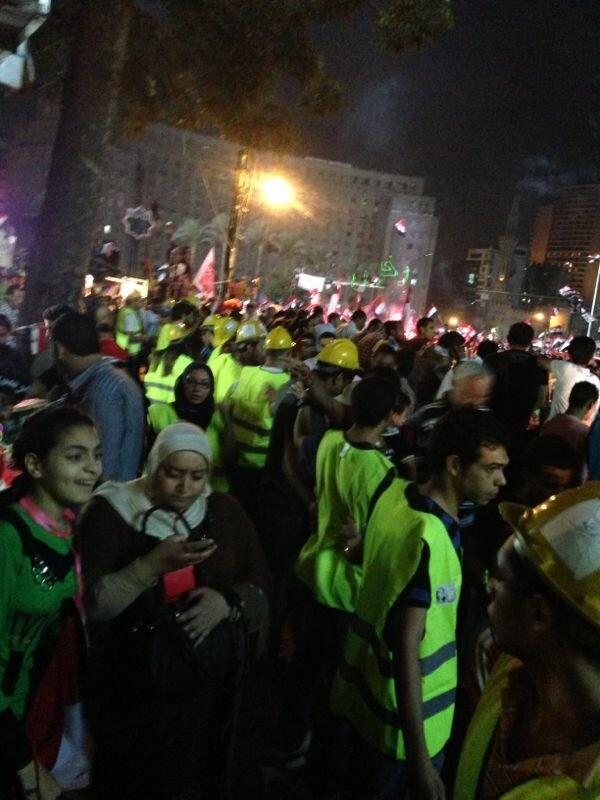The first time I ever saw an incident of street harassment in Tahrir was long before the Square had made it into world news headlines. I distinctly remember the sight of the woman holding her harasser by the collar of his shirt while packs of passersby gathered around bombarding her with implorations to let him go.
But what did he do? What do you mean he harassed you, was it just talk? Let him go! Are you really going to report him over THAT? The police will not do anything; just let him go. Harassment? That doesn’t happen here, what are you trying to get out of this poor man?
“I’ll let him go over my dead body,” she said flatly.
That afternoon, I watched this young woman literally drag her harasser all the way to the police station. I, like the gathering crowd, found the idea of reporting a harassment case to the police exasperating; at best, they would ignore her pleas to report, at worst, she would have been a laughing stock for the officers. Indeed, after a while, the man emerged from the police station, looking quite flustered but otherwise free from charges. The woman he harassed soon followed looking quite unbothered herself.
“Why did you report him knowing they will just laugh at you?” I decided to approach her and ask.
“I don’t care what they will or will not do, I wanted everyone to watch him being dragged around for harassing a woman and I wanted him to see everyone watching him,” she said.
Before the revolution, it was incredibly rare for anyone to use the term “harassment” in Egypt; they called it other things, mostly “catcalls” and even then the matter was never considered a serious problem. Only when physical assault was involved was it taken seriously.
That street harassment was not addressed as such is partially linked to the lack of political space from which we may have highlighted the issue as a human rights violation.
Then, as the January 2011 revolution took place, we saw a whole other face to street harassment. Mob attacks by the hundreds on both journalists and protestors soon made it into headlines news. All of a sudden, people started talking about street harassment as a criminal act, as something that ought to be punishable by law.
And then the fury died down as we all went back to our daily lives. The problem then was that street harassment became part of our daily routines. With the lack of order and stability that followed the revolution, physical and verbal harassment became an everyday thing for the women of Cairo. Before, harassers would carry out the deed with a sense of privacy- in isolated places, late at night etc.- tapping into the common notion that street harassment was not really a problem for Egyptians and therefore making it more difficult for us to shame the behaviour.
After 2011, street harassment became reflective of a certain power dynamic. Every major protest came with a renewed wave of attacks, often employed as a deterrence tool against political expression. But this time, we were ready. The formation of Tahrir Bodyguard, Op Anti-SH and other movements not only provided physical protection of female protestors, but also enforced the reality that Egyptian women will stop at nothing to take ownership of their streets and of their revolution.
On June 30, despite the continued brutality of sexual assault, more Egyptian women took the streets than ever. While our issues with street harassment are not resolved, our continued fight against it has come to mean one thing- that we are on the right track.
Yasmine Nagaty is a Political Science graduate and an aspiring writer from the American University in Cairo and currently works at the Egyptian NGO Misr ElKheir. You can follow her on Twitter.

